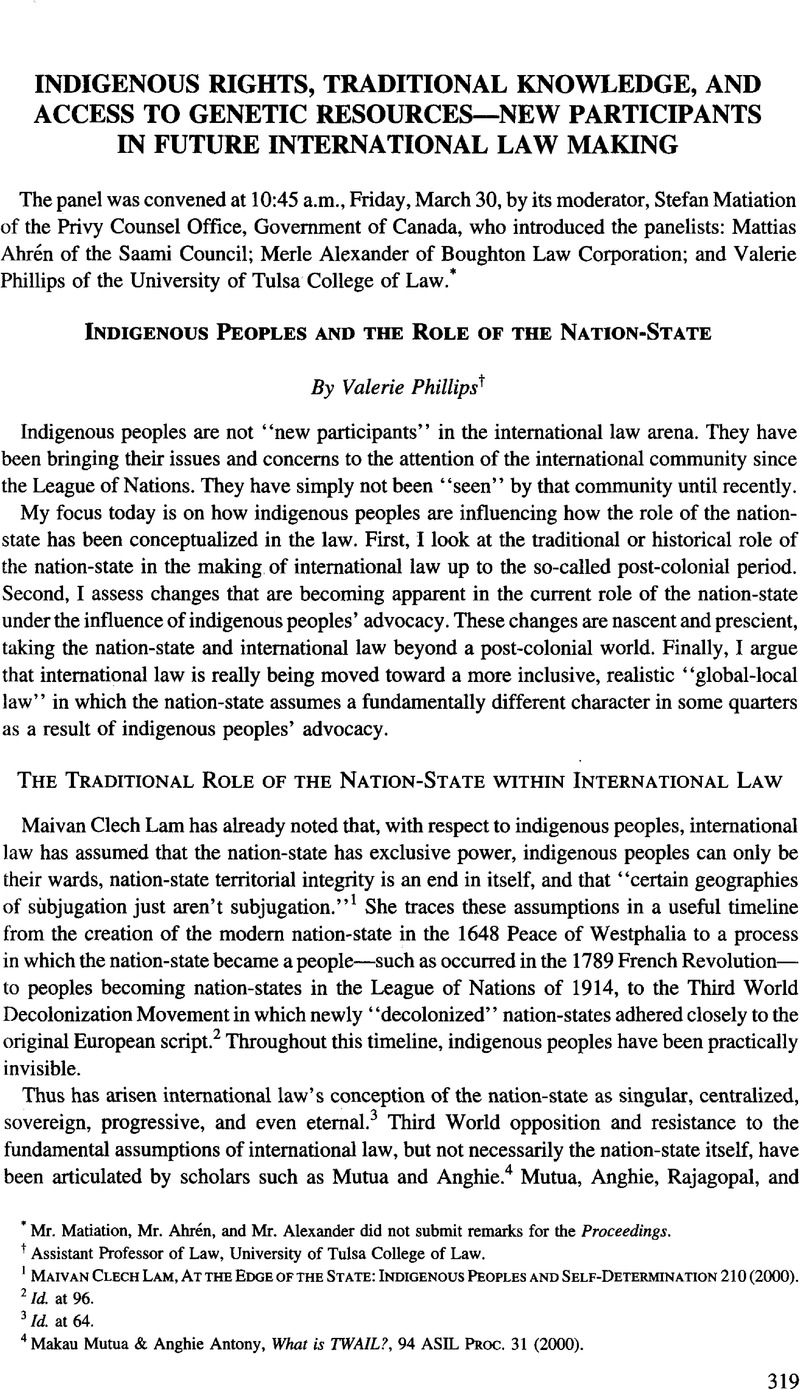Article contents
Indigenous Peoples and the Role of the Nation-State
Published online by Cambridge University Press: 28 February 2017
Abstract

- Type
- Indigenous Rights, Traditional Knowledge, and Access to Genetic Resources—New Participants in Future International Law Making
- Information
- Copyright
- Copyright © American Society of International Law 2007
References
* Mr. Matiation, Mr. Ahren, and Mr. Alexander did not submit remarks for the Proceedings.
1 Maivan Clech Lam, At the Edge of the State: Indigenous Peoples and Self-Determination 210 (2000).
2 Id. at 96.
3 Id. at 64.
4 Mutua, Makau & Antony, Anghie, What is Twail?, 94 ASIL Proc. 31 (2000)Google Scholar.
5 Id.
6 While TWAIL (and CRT) scholars acknowledge this tendency, they still tend to try to squeeze the round peg of indigenous peoples into the square hole of TWAIL without really examining how indigenous peoples’ origins, advocacy, and goals might be different from those of TWAIL as well as of the post-colonial nation-state. Works such as Rajagopal’s are a limited exception that does not fully acknowledge these differences nor fully clarify the resulting implications for international law and all nation-states, including those of the Third World.
7 Lam, supra note 1, at 99.
8 Partha Chatterjee, The Nation and its Fragments: Colonial and Postcolonial Histories 13 (1993).
9 Id. at 74.
10 Id. at 75.
11 Balakrishnana |Rajagopal, International Law From Below: Development, Social Movements, and Third World Resistance 22 (2003).
12 Id.
13 Id. at 21.
14 Id. at 263.
15 Id.
16 Id. at 264-65.
17 Associate Professor of Maori Education and Director of the International Research Institute for Maori and Indigenous Studies at the University of Auckland, New Zealand.
18 Rajagopal, supra note 11, at 23.
19 Tom Hayden, Bolivia’s Indian Revolt, The Nation, June 21, 2004.
20 Id.
21 Jorge G. Castaneda, Latin America’s Left Turn, 85 Foreign Aff., May/June 2006.
22 See supra note 19.
- 1
- Cited by


